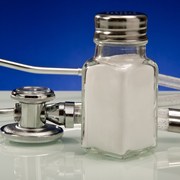 Jerry Bernard/PhotoSpin
Jerry Bernard/PhotoSpin
Did you know that approximately 60 percent of all adult Americans are impacted by hypertension or high blood pressure?
According to the Centers for Disease Control and Prevention, approximately one out of every three adult Americans currently suffers from high blood pressure.
Another 30 percent have pre-hypertension. Pre-hypertension is blood pressure which is elevated above normal levels but not quite high enough yet to be considered hypertensive.
An equal opportunity condition, high blood pressure affects men and women, as well as people of all ages, geographies, and ethnicities.
While anyone can develop high blood pressure, certain demographics are at a greater risk for high blood pressure than others.
Men under age 45 generally have higher rates of high blood pressure but the trend reverses as we age, putting women at a greater risk.
Ethnicity also plays a role in high blood pressure. More African-Americans have high blood pressure than any other single ethnic group.
The CDC reports that 43 percent of all African-American men and almost 46 percent of African-American women have high blood pressure. High blood pressure also develops earlier in African-Americans and tends to be more severe than in other demographics.
High blood pressure puts you at an increased risk of other serious -- and sometimes life threatening -- health conditions such as heart disease and stroke.
The good news is that blood pressure levels can be reduced by lifestyle changes. If you’re a member of the 60 percent club, one of the first lifestyle changes recommended should include dietary changes such as eating more fresh fruits and vegetables, and limiting the amount of daily salt intake.
While much emphasis has been placed on limiting dietary salt as a means of reducing high blood pressure, the results of a new study suggest that stress may be a contributing factor to salt retention.
In a study led by Dr. Gregory Harshfield, a hypertension researcher at the Institute of Public and Prevention Health at Georgia Health Sciences University, researchers found that 30 percent of blacks and 10 percent of whites actually retain more salt when under stress.
The recommended daily intake of salt is less than 2300 milligrams, with fewer than 1500 milligrams being ideal.
To put it in perspective, 2300 milligrams is the equivalent of approximately one teaspoon of salt.
On the surface, limiting salt consumption to less than a teaspoon a day may appear to be an easily attainable goal. After all, few of us actually pick up the salt shaker and apply a teaspoon of salt to our food throughout the day.
However, once you begin to read food labels, you find that many foods are full of hidden salt making it all too easy to exceed the recommended daily amount. Researchers found that for persons susceptible to stress retained excess salt in an amount equivalent to consuming a small bag of potato chips or a serving of French fries.
Throughout the course of the day, stress -- coupled with the added salt in the system of impacted persons -- resulted in a greater load on blood pressure.
Researchers reported that not only did blood pressure rise an average of seven points on the top number, but the numbers stayed elevated for a longer period of time.
In addition, Harshfield theorizes that this also causes an increase in blood pressure during sleep when the body is normally able to rest and recover.
Blood pressure is one condition which can be greatly improved by lifestyle changes. If you’re already making dietary changes and controlling your salt, the study suggested that taking a look at the stress level in your life just might be what the doctor ordered to limit salt intake and lower blood pressure.
While additional studies may be needed, eliminating stress can only be a win-win for your overall physical and emotional health.
Sources:
Georgia Health Sciences University (2012, September 7). Stress prompts some to retain as much salt as eating fries, study finds. ScienceDaily. Retrieved September 10, 2012, from
http://www.sciencedaily.com/releases/2012/09/120907125021.htm
Your Guide to Lowering Your Blood Pressure With Dash. National Heart Lung and Blood Institute. 06 April 2006.
http://www.nhlbi.nih.gov/health/public/heart/hbp/dash/new_dash.pdf
Your Risk for High Blood Pressure: High Blood Pressure and African-Americans. American Heart Association. 04/04/2012.
http://www.heart.org/HEARTORG/Conditions/HighBloodPressure/UnderstandYourRiskforHighBloodPressure/High-Blood-Pressure-and-African-Americans_UCM_301832_Article.jsp
How to Prevent High Blood Pressure. Centers for Disease Control and Prevention. 01 February 2010.
http://www.cdc.gov/bloodpressure/what_you_can_do.htm
High Blood Pressure Facts. Centers for Disease Control and Prevention. 13 Mar 2012.
http://www.cdc.gov/bloodpressure/facts.htm
Reviewed September 11, 2012
by Michele Blacksberg RN
Edited by Jody Smith






Add a CommentComments
There are no comments yet. Be the first one and get the conversation started!